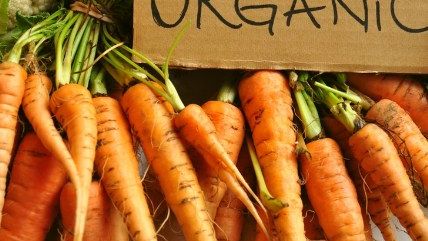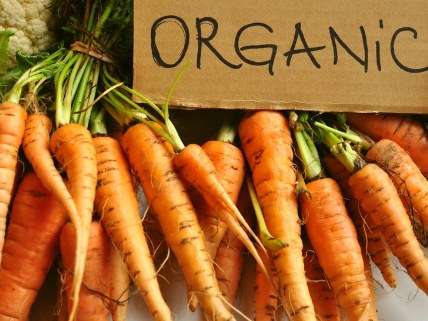The USDA's Synthetic Oversight of Organic Food
As an ongoing lawsuit makes clear, the regulations are a joke. How do we fix them?


Last month, a federal judge in California refused to dismiss a lawsuit challenging U.S. Department of Agriculture (USDA) actions pertaining to its statutory oversight of organic food.
The case, filed last year by more than a dozen groups, challenges changes to the procedures under which the agency determines whether certain synthetic substances may continue to be used in food the agency permits to be labeled as organic.
Under the Organic Foods Production Act of 1990, which gave the USDA authority over organic-food labeling, the agency maintains a list of synthetic substances that may be used in organic products. Decisions about any substance on the list had been forced to sunset after five years unless two-thirds of the agency's National Organic Standards Board (NOSB) recommended a given substance remain on the list.
But the USDA changed the rules in 2013, delegating much of the decisionmaking power over synthetic substances to a NOSB subcommittee. Since that time, the plaintiffs in the lawsuit argue that this USDA inaction "has allowed more than 20 synthetic substances to continue being used in organic agriculture."
The lawsuit, which alleges "the USDA promulgated the regulation without providing the public the opportunity for notice and comment and acted in an arbitrary and capricious manner[,]" is just the latest in a string of litigation and controversy surrounding the agency's oversight of organic-food labeling.
This wasn't the organic-food labeling system Congress promised us in 1990. I described briefly the history of organic-food labeling in a 2010 article in the Chapman Law Review (citations omitted):
"California passed the nation's first true organic certification law in 1979. Though Oregon's law preceded that of California, Oregon's law was chiefly an anti-fraud measure intended only to classify which producers could advertise their products as 'organic.' California regulations built upon Oregon's and in addition defined the term 'synthetic,' contained public disclosure provisions, and required specific organic labeling language. In 1982, California amended the 1979 regulations, making the state the first to define the term 'organic.' In 1990, California again amended its law, permitting public agencies or private certifiers like [California Certified Organic Farmers] CCOF, today the nation's largest such body, to inspect growers to ensure compliance with the regulations.
"In 1990, Congress enacted the first federal organic standards…. [O]rganic activists in the state and elsewhere criticized the final rule as watered-down and overinclusive."
And, as I describe in my new book, Biting the Hands that Feed Us: How Fewer, Smarter Laws Would Make Our Food System More Sustainable (available for just $3 for Kindle through the end of this month!), the meaning of the term "organic" has been so watered down over the years by the USDA that the term has become confusing and largely meaningless.
Just as is the case with the current lawsuit, I write, controversy often hinges on the agency's inclusion of synthetic ingredients:
Meetings of the USDA's National Organic Standards Board, which establishes limits for which foods may earn the USDA organic seal, have become a "semi-annual ritual of controversy," the Washington Post reported in a 2015 article that focused on the possible addition of synthetic pesticides and additives to the list of substances that would be permissible to use while still earning the agency's organic label.
[…]
The organic rules have been the source of other controversies. In 2009, USDA employees urged the agency to ban some synthetic additives from organic baby formula. But they were overruled, reported the Washington Post, "after a USDA program manager was lobbied by the formula makers and overruled her staff." The report said the issue went to the heart of "the integrity of the federal organic label."
I'm not the least bit skeptical of the integrity of organic food. But the USDA's oversight of organic-food invites nothing but skepticism, save perhaps revulsion.
Congress passed the Organic Foods Production Act of 1990 in an effort to combat fraud. But the law has proven unable to achieve its goal. Congress should step in and repeal the 1990 law, returning certification to the states. Better still, Congress and states should get out of the business of regulating what is and isn't organic enitrely, and allow bodies like CCOF, Oregon Tilth, and the dozens of other certifying bodies around the country—working with farmers and consumers—to determine what does and doesn't meet their definition of "organic."


Show Comments (134)